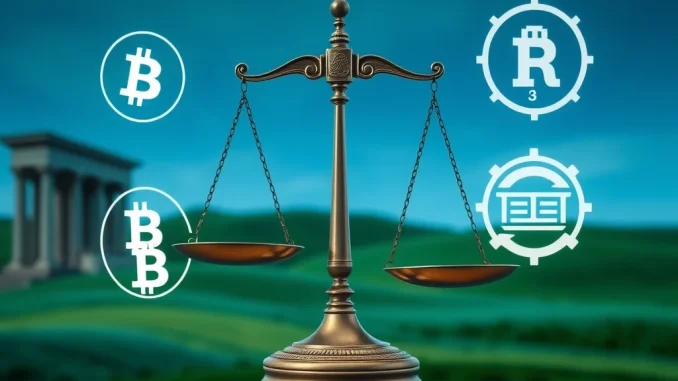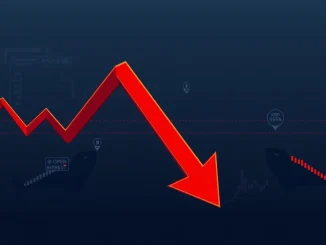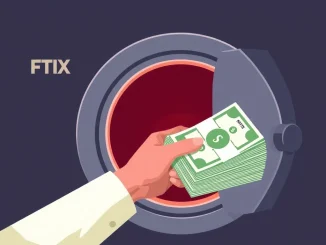
The legal battle surrounding privacy-focused cryptocurrency wallet, Samourai Wallet, has taken a dramatic turn. Lawyers representing the service’s co-founders, Keonne Rodriguez and William Lonergan Hill, have filed a motion seeking the outright dismissal of the serious charges against them. The core of their argument? They allege prosecutors in the ongoing crypto legal case deliberately withheld crucial evidence that could prove their clients’ innocence.
What are the Charges and the Defense’s Bold Claim?
Keonne Rodriguez and William Lonergan Hill face charges including conspiracy to commit money laundering and conspiracy to operate an unlicensed money transmitting business. These are significant allegations carrying potentially severe penalties.
However, the defense team’s motion introduces a surprising element. They claim to possess evidence that directly contradicts the prosecution’s premise that Samourai Wallet required a money transmission license. According to a court filing, this evidence comes directly from a key regulatory body.
The Alleged FinCEN Communication
The defense states that the Financial Crimes Enforcement Network (FinCEN), the very agency responsible for overseeing money transmission regulations in the U.S., informed prosecutors back in August 2023 that, in their view, Samourai Wallet did not qualify as a money transmitter and therefore did not need a license. This communication, if true and accurate, would appear to directly undermine one of the primary charges against the co-founders.
Here’s a breakdown of the alleged timeline presented by the defense:
- August 2023: FinCEN allegedly tells prosecutors Samourai Wallet is not a money transmitter.
- February 2024: Charges are filed against Samourai Wallet co-founders, including unlicensed money transmission.
- April 2025: Prosecutors allegedly disclose the August 2023 FinCEN communication to the defense.
The defense highlights the significant gap between when this alleged exculpatory evidence was known to the prosecution (August 2023) and when it was disclosed to the defense (April 2025), which is notably after the charges were filed in February 2024.
The Brady Rule and Alleged Violations
Central to the defense’s argument is the Brady Rule. This is a well-established legal principle in the United States requiring prosecutors to disclose any evidence they possess that could be favorable to the defendant – meaning it could help prove their innocence or be used to impeach the credibility of government witnesses. Failure to disclose such evidence is considered a violation of due process.
The defense contends that the alleged withholding of the FinCEN communication constitutes a clear violation of the Brady Rule. They argue that this omission has severely prejudiced their ability to mount an effective defense and has unfairly impacted the defendants’ bail conditions, which were set based on the charges filed without the defense having access to this potentially exculpatory information.
Implications for Money Transmission Laws in Crypto
This case also shines a spotlight on the ongoing debate surrounding how existing Money Transmission laws apply to cryptocurrency services, particularly those focused on privacy like Samourai Wallet. Regulators and courts continue to grapple with defining what constitutes a money transmitter in the context of decentralized or privacy-enhancing technologies.
The alleged FinCEN assessment adds another layer to this complexity. If a major regulatory body itself indicated that Samourai Wallet didn’t fit the definition requiring a license, it raises significant questions about the basis for filing charges related to unlicensed transmission. This aspect of the case could have broader implications for other crypto projects and how they navigate the regulatory landscape.
The defense argues that the government’s case is fundamentally flawed because it proceeds on a legal premise (requiring a license) that their own regulatory experts (FinCEN, allegedly) contradicted months before charges were brought.
What Happens Next?
The court will now consider the defense’s motion to dismiss based on these serious allegations of withheld evidence. A hearing on the matter is reportedly scheduled for July 22. This hearing will be crucial in determining whether the case proceeds or is thrown out based on the alleged Brady violation.
Summary: A Critical Juncture for Samourai Wallet
The legal battle for Samourai Wallet co-founders has entered a critical phase with the defense alleging that prosecutors hid evidence from FinCEN that could clear them of unlicensed Money Transmission charges. Citing a violation of the Brady Rule, the defense seeks dismissal of the entire crypto legal case. The outcome of the upcoming July 22 hearing will be pivotal, potentially setting a precedent for how such cases are handled and highlighting the importance of proper evidence disclosure in complex cryptocurrency-related prosecutions.



